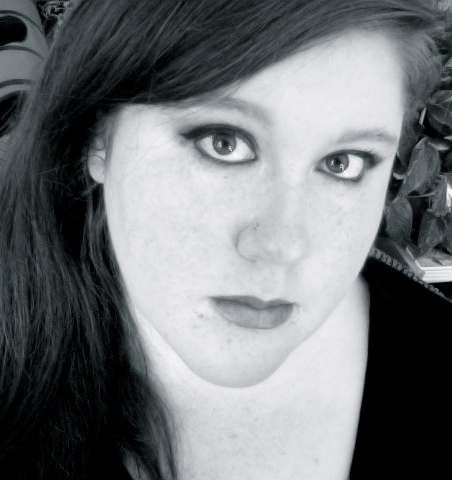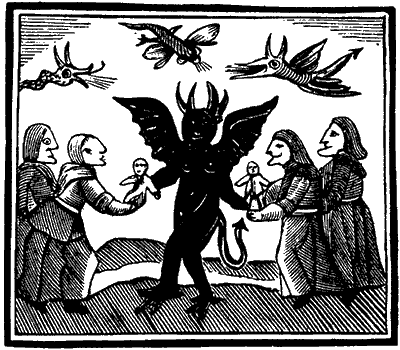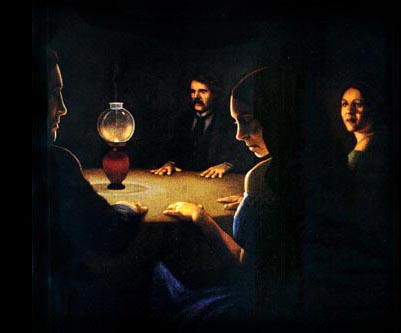 Written by APS Founder & Mid Atlantic Director:
Written by APS Founder & Mid Atlantic Director:
Alex Matsuo
Today, the mainstream media has seemed to make the paranormal “normal” so to speak. Many people credit television shows and documentary style of presenting the paranormal in such a way where it’s no longer a novelty or  cliché, but a legitimate experience that many people share. Many people think that the paranormal craze started in the late 20th/early 21st century and that this is a fairly new thing.
cliché, but a legitimate experience that many people share. Many people think that the paranormal craze started in the late 20th/early 21st century and that this is a fairly new thing.
Actually, it’s not. However, the perceptions of the paranormal has changed and evolved over the course of human history, and it’s a cycle that is simply repeating itself as opinions and the influence of religion changes.
What we call the paranormal today was called something else completely different before the term was even coined. For the purpose of consistency, I’ll use the term “unknown” for the duration of this piece.
For thousands of years, humans worshipped deities whether it was in the form of a single God or several different gods and goddesses. There was an awareness and knowledge of a spiritual world that was beyond our physical world. Communicating with deceased ancestors was not out of the norm, and was a common practice.
But then, things changed…
Let us consider Elizabethan England, or the Renaissance. The Reformation movement saw a new age of Protestantism and Catholicism became a hushed practice. There wasn’t any mainstream knowledge of the unknown at the time, and those who studied and practiced it were regarded as evil or unholy so to speak. Stories of such individuals like Doctor Faustus ran rampant to show the repercussions of seeking knowledge and consorting with the Devil. According to the Bible, those that looked like spirits of our loved ones were really evil spirits in disguise meant to trick us. And mediumship was out of the question as well and they were not popular people (but still consulted in secret).
Salem was not the only one famous for witch trials. In England, there was a very real fear of witches and any sort of practice that would be interpreted as consorting with the Devil. After participating in several witch trials in North Berwick, King James I of England (and VI of Scotland respectively) wrote a favorable account of witch hunting in his book, Daemonologie, in 1597. This perception was acceptable and enforced.
Now, let’s fast-forward to the 19th century.
Victorian times found a fascination with gothic themes and horror. Stories of Frankenstein, Dr. Jekyll and Mr. Hyde plus Charles Dickens incorporating ghosts in his works. Perhaps this is one of the reasons for the rise in spirit photography, Spiritualism, séances, eerie special effects on the stage, and the founding of The Ghost Club in 1862 plus the Society for Psychical Research (1882), and American Society for Psychical Research (1884). If there weren’t a widespread acceptance in what they perceived as the unknown, it wouldn’t have been as popular as it was.
It seems that acceptance of the unknown comes in waves. The popularity of the unknown today is not unique, but it looks like this is here to stay for a while. Hopefully, this acceptance will continue and not go back into hiding in a few decades.
But also rest assured that the acceptance of the unknown has come and go because there are people who have had experiences, regardless of societal views. The popularity that we see today is thanks to media exposure heightening our awareness, but the popularity is not new for us, and hopefully the cycle will continue in the believer’s favor.


Reblogged this on Paranormalogistically.